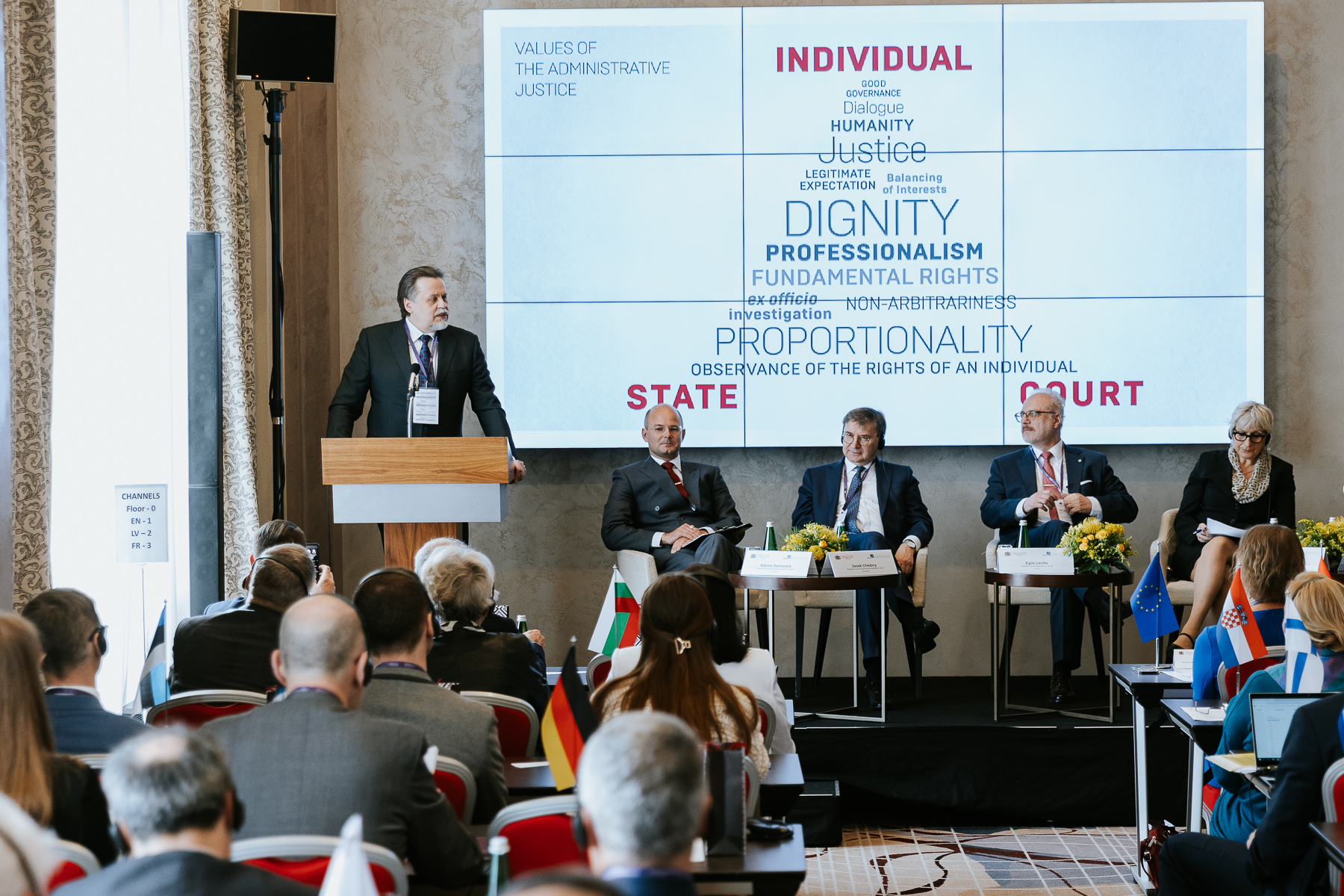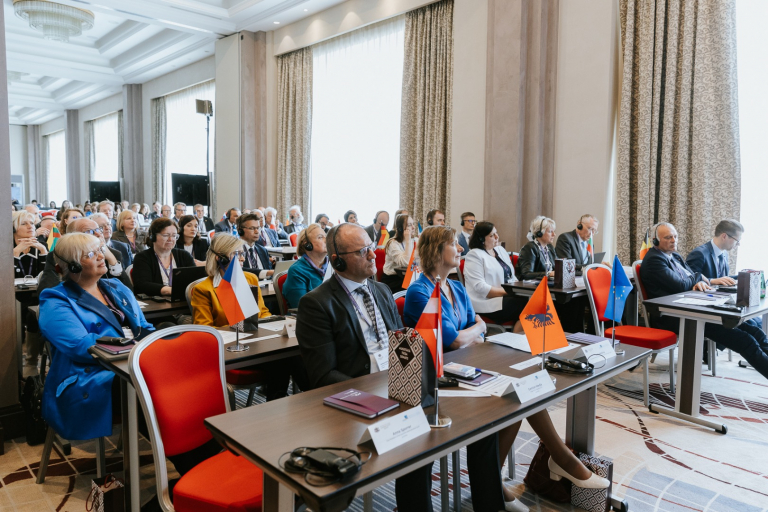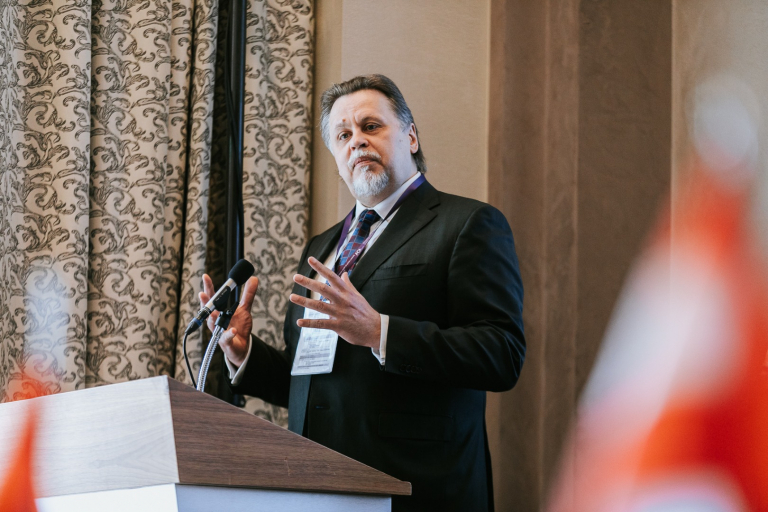28. aprīlis, 2023.
Address by Aigars STRUPIŠS, the President of the Supreme Court of Latvia, at the international seminar "The judge and inert administration. Administrative discretionary power" organized by the Supreme Court in cooperation with the Association of the Councils of State and Supreme Administrative Jurisdictions of the European Union (ACA-Europe) on April 27, 2023
Dear Mr. President, Colleagues, Guests!
It is both an honour and a pleasure to welcome you all in Riga by participating in this seminar. Courts have a special place in the state's relations with society. On the one hand, the court stands aloof from the state's main modus vivendi – politics, where supposedly the most interesting things happen. On the other hand, the court is involved by having another – non-political – capacity. And this creates challenges.
The court is an essential player in the execution of state powers. Indeed, the court is not an active player compared to the legislature and the executive, but that does not change the nature of the court as a state organ.
An administrative court has a particularly special place in this scene, because the administrative court hears disputes regarding the acts of public authority, and these are disputes between the state and individuals about the violation of their rights.
This creates unique challenges for the administrative court. The administrative court, like any court, is part of the state apparatus, and this carries an inherent risk that people may perceive it as biased. Folk wisdom already says it: a crow will not peck out a crow's eyes, one hand washes the other, etc. If you ask another question – who finances the court, and the answer is – the state, then the conclusion is that the court cannot be objective, because how can the left hand control the right hand?
Another proverb – whoever pays the musician calls the tune.
The fallacy of such a train of thought appears in the answer that ‘the court is financed by the state’. In reality, the court is funded by society, for safety and well-being of which the state exists at all.
But in any case, the administrative court must make special efforts to maintain its objectivity and reduce the possibility for such accusations be made.
This is ensured to a certain extent, firstly, by procedural tools (principle of objective investigation), secondly, by professional, neutral actions, thirdly, by understanding the role of a judge.
This is what concerns the criticism from the public.
However, also form the other side (from the side of other branches of state power) there are often accusations made.
Often, politicians and civil servants do not like court rulings that overturn acts of public authority. Then the courts tend to be offended for judicial activism, interference in politics, etc.
We have not had very serious excesses of this kind in the administrative courts, but we have had them in the field of constitutional control.
Several examples can be cited.
There has been the reluctance to comply with the judgments of the Constitutional Court, for example, on the issue of recognizing the rights of same-sex couples, as a result of which, by the way, the administrative courts instead of politicians are forced to solve this issue in individual legal proceedings and receive criticism from all sides.
Another example regards the non-appointment of the former president of the Constitutional Court as a judge of the Supreme Court because some politicians did not like one specific judgment of the Constitutional Court.
In this context, the principle of independence of the judge and the various aspects of ensuring this independence are of particular importance.
Administrative court judges, like judges of general courts, are appointed for life, so the possibility of influencing them in this way is excluded.
However, accusations of this type can negatively affect the prestige of the court and public trust in judiciary. Some politicians actively support judicial independence, some do not, and some pretend that there is no problem.
In this context, the topic of today's conference – administrative silence, or as it is also called – the inert administration, and the discretionary power of the courts – are very interesting issues from the judge's point of view. Because a person's rights can be affected not only by active state action, but also by inaction. And if person’s rights have been affected, the court has no reason to refuse to hear such case just because there was no active action taken. This inevitably arises the question – might the courts again be blamed for judicial activism in an attempt to replace the ‘silent executive’?
However, as another folk wisdom says – speech is silver, silence is golden (this should probably not be applied to administrative law). Therefore, for now I am going to be discreet and keep quiet and let the experts in the field do the talking. Let the seminar be successful!




